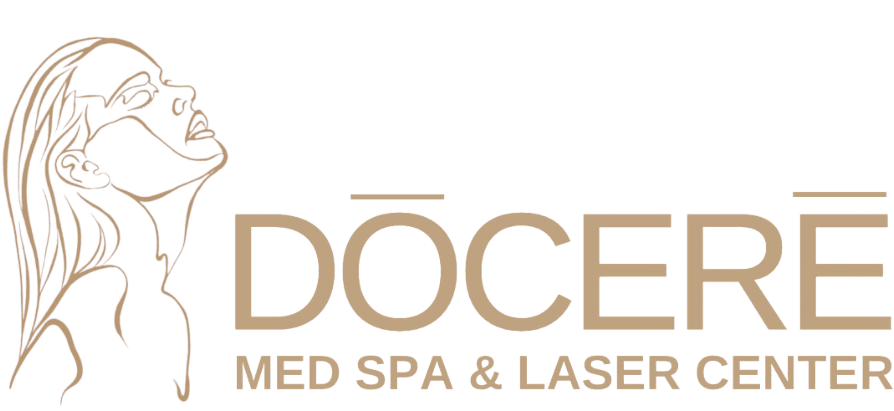
- admin
What Are the Signs That You Need Hormone Replacement Therapy?
Hormones are powerful chemical messengers within the body. These signals regulate many critical bodily functions, such as mood, metabolism, sleep cycles, energy levels, stress levels, and sexual function. As we age, our hormone levels can fluctuate, leading to imbalances. A hormone imbalance can cause undesirable and disruptive symptoms such as:
- Mood swings
- Weight gain
- Hair loss
- Low libido
Luckily, hormone replacement therapy is a safe and worthwhile solution that can help relieve these symptoms by replacing the hormones that the body is lacking.
Before deciding to try hormone replacement therapy, it is essential to recognize the signs to look out for so you can decide whether this treatment is ideal for you and your lifestyle. Let’s examine hormone therapy, how it works, and the most common symptoms to look for.
What Is Hormone Replacement Therapy?
Hormone replacement therapy (HRT) is a medical treatment that supplements the body with hormones it is no longer producing. For women, HRT primarily helps manage the symptoms of menopause by restoring female hormones to a lower level. HRT for men focuses on restoring testosterone levels. One of the most effective types of therapy pellets, which use hormones identical to the natural hormones found in the body. These bioidentical hormones mimic the function of hormones in the body, restoring proper levels and reducing undesirable symptoms.
Signs That You Need Hormone Replacement Therapy
During perimenopause (the preparatory stage), menopause (the end of menstruation), and post-menopause, a woman’s body fluctuates in the production of critical hormones such as estrogen, progesterone, and testosterone.
Changes in hormone levels during this transition period can significantly impact a woman’s health and lead to physical and emotional symptoms that can significantly disrupt daily life and last for years. Here are some common symptoms to look out for that might suggest the need for HRT.
Hot Flashes
One of the most common and familiar symptoms during menopause is hot flashes. These sudden and intense feelings of heat can start in the face or neck and surge throughout the body. Hot flashes vary in severity and can last a few moments or longer. A racing heartbeat, redness in the face, or sweating can also accompany these heat surges.
Night sweats are hot flashes that happen at night, causing women to wake up feeling overheated and sweaty. They can last for years, leading to fatigue, mood swings, and significantly affected quality of life.
Sleeping Problems
Another familiar symptom during menopause or with general imbalances is difficulty sleeping. Fluctuations in hormone levels can lead to restlessness and difficulty falling asleep. Waking up throughout the night from sleep disturbances like frequent urination or night sweats can also make it challenging to stay asleep. Poor sleep can lead to insomnia, fatigue, mood disturbances, and low productivity.
Lack of Energy
Fluctuating hormone levels and inadequate sleep can affect energy levels, leading to tiredness and chronic fatigue. Some may experience decreased motivation, low physical strength, or a general lethargy. Often, getting enough rest is not enough to alleviate these symptoms. As a result, it is difficult to complete daily activities, which becomes very challenging with a persistent lack of energy.
Mood Swings
Many women experience mood swings leading up to, during, or after menopause. Changing hormone levels can impact the body’s production of serotonin, which plays a key role in regulating mood. When serotonin levels are low, sudden changes in emotion can occur without any apparent trigger. This can trigger intense feelings of sadness, anger, irritability, or anxiety. This lack of well-being can greatly impact relationships and day-to-day life.
Vaginal Dryness
Another major side effect of menopause is vaginal dryness. Low levels of estrogen can cause the vaginal walls to become thin or dry. Additionally, inflammation may affect the vaginal walls, a condition known as vaginal atrophy. All of these symptoms can cause discomfort during sexual intercourse and affect overall sexual wellness and intimacy. Vaginal dryness can also lead to itchiness, frequent urinary tract infections and pain during exercise or physical activity.
Low Libido and Decrease in Sexual Desire
Physical symptoms such as vaginal dryness and itchiness may cause sexual intercourse to be painful and make it challenging to enjoy intimacy. Additionally, a decrease in hormones like estrogen and testosterone may lead to a decline in sexual desire. As a result, these changes can cause stress and impact your relationships, mood, and overall self-confidence.
Brain Fog
Many people experience difficulty focusing, paying attention, or multitasking. Also known as brain fog, this term represents a range of cognitive symptoms that can greatly impact daily life. These changes affect mental alertness and may cause information to be processed more slowly.
Symptoms can include forgetfulness, trouble finding words, feeling overwhelmed, and overall mental cloudiness. These changes can be highly disruptive, potentially affecting daily tasks, work performance, home life, and overall mental well-being.
Bladder Problems and Incontinence
Urinary incontinence (UI) is an inconvenient and uncomfortable problem that affects more than 50% of postmenopausal women. This condition causes an increase in urinary frequency and urgency and may even lead to the inability to control urination. As estrogen levels drop, these hormonal changes can lead to vaginal dryness and thinning. As a result, this can increase the need to urinate and make it more difficult to hold in urine.
Additionally, weak pelvic floor muscles, a loss of bladder elasticity, and weight gain can also contribute to a sudden urge to urinate or the inability to empty the bladder fully. UI can be debilitating and embarrassing and greatly impact daily life, relationships, sleep, and well-being.
Hair Loss and Hair Thinning
Hair loss and thinning are additional occurrences during menopause and can also happen due to general hormonal imbalance. Hair loss can make you self-conscious about your physical appearance and impact your mood and self-esteem. Most women may experience hair thinning on the front, sides, or top of the head.
Large clumps of hair may also fall out during showering or when brushing.
Estrogen and progesterone both play a key role in supporting hair growth. However, during menopause, a decrease in these two hormones slows down hair growth and causes hair to become thinner. A hormone drop can also trigger a surge of male hormones called androgens that cause hair follicles to shrink and hair loss to increase.
Weight Gain
It is extremely common to gain weight during menopause. Typically, rapid weight gain may begin a few years before menopause, also known as perimenopause. The amount of estrogen and progesterone the body produces starts to slow down, leading to metabolic changes. Of course, this is another symptom not just for menopause but can also be due to general hormonal concerns.
Decreased energy levels, muscle mass, and overall physical activity can contribute to a sluggish metabolism and cause our body to store more fat. As a result, this increases belly fat, “menopause belly,” and overall weight gain. “Cortisol belly” is another indicator and a term for weight gain in the abdomen caused by high levels of cortisol in the body. Cortisol is a hormone that helps the body manage stress, regulate blood sugar, and reduce inflammation.
How Hormone Pellet Therapy Can Help
When unpleasant symptoms become disruptive and impact your overall well-being, hormone replacement therapy can be a fantastic solution to consider. If you identify with several of these signs and they consistently impact your daily life, hormone pellet therapy is a form of HRT that can help manage your symptoms and provide tremendous relief.
Hormone pellet therapy provides a steady release of bioidentical hormones into the body using tiny pellets replicating human hormones. The pellets are made of custom-compounded hormones and are inserted beneath the skin during an in-office visit. Within four to six weeks after the pellet insertion, the hormone therapy begins to take effect. Many patients experience the benefits after the second insertion.
What Are The Benefits of Hormone Replacement Therapy?
Hormone pellets are a safe, convenient, and effective form of therapy that delivers small amounts of natural hormones consistently. There are many advantages to look forward to with Hormone replacement. One of the main benefits is that it can restore natural hormone levels and relieve symptoms of menopause, such as low energy and fatigue.
Additional benefits of Hormone therapy include:
- Improves mood and well-being
- Supports weight management
- Increases energy levels
- Enhances quality of sleep
- Improves low libido and sexual health
- Improves bladder control
- Improves bone density
- Improves memory and concentration
- Reduces anxiety
- Supports hair growth
- Improves mood and well-being
- Supports weight management
- Increases energy levels
- Enhances quality of sleep
- Improves low libido and sexual health
- Improves bladder control
- Improves bone density
- Improves memory and concentration
- Reduces anxiety
- Supports hair growth
As a customizable solution, each patient receives a unique blend of hormones based on individual lab results and health needs.
Hormone Therapy Near Me in Cleveland, Ohio
Is low energy, brain fog, weight gain, or mood swings disrupting your quality of life and preventing you from reaching your true potential? If you are ready to enhance your well-being and find relief from your current symptoms, Hormone replacement therapy can be a life-changing solution to consider. At Dōcerē, we specialize in hormonal health for women and HRT for men and are a top provider of hormone pellet therapy in Cleveland, Ohio.
Call (440) 238-3331 to schedule your complimentary hormone replacement therapy consultation. Speak with one of our experienced medical experts to learn more about the amazing benefits of hormone pellets and how this natural solution can help restore balance to your body and provide long-lasting relief from your symptoms.
Schedule a Free Consultation
Schedule a Free Consultation
Important Safety Information
CoolTone® is FDA-cleared to strengthen, tone, and firm the abdomen, buttocks, and thighs. Common side effects include muscle, joint, or tendon pain, muscle spasm, and skin redness.
